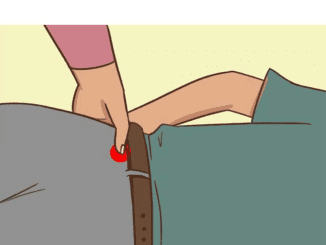Hearing from your doctor that you’re on the verge of being classified as obese can be a wake-up call. While it might feel overwhelming, the good news is that you have the power to turn things around without resorting to medical interventions. By adopting healthier habits and making consistent lifestyle changes, you can regain control of your health and well-being.
Understanding the Health Risks of Obesity

Obesity isn’t just about body weight—it’s a condition that can significantly impact your overall health. With a BMI (Body Mass Index) of 30 or above, obesity increases the risk of chronic illnesses such as type 2 diabetes, heart disease, stroke, and certain cancers. Being close to this classification means your body is signaling a need for change. Recognizing these risks can motivate you to take action and improve your health before reaching that critical threshold.
Evaluating Your Current Lifestyle: Where to Begin
The first step in reversing this trend is taking an honest look at your current lifestyle. Ask yourself:
- What does my daily diet consist of?
- How often do I exercise?
- Am I getting enough sleep?
- How do I manage stress?
Keeping a journal to track your eating habits, physical activity, and routines can reveal patterns that may be contributing to weight gain. This process isn’t about judgment—it’s about awareness. Once you’ve identified the areas that need improvement, you can create a tailored plan for change.
The Crucial Role of Nutrition in Weight Management
Let’s face it: what you eat plays a massive role in your weight. But the good news? Small, sustainable tweaks can make a big difference. Here’s where to start:
- Focus on whole foods: Make fruits, vegetables, lean proteins, and whole grains the stars of your meals. These nutrient-rich options fuel your body and help control cravings.
- Cut back on processed foods: Minimize your intake of sugary drinks, packaged snacks, and high-calorie fast foods. These are often packed with empty calories that can lead to weight gain.
- Practice portion control: Try using smaller plates and pay attention to serving sizes. Eating slowly and mindfully can also prevent overeating.
If you’re unsure where to start, consider consulting a registered dietitian who can create a personalized plan based on your preferences and goals.
Making Physical Activity a Part of Your Routine
Exercise doesn’t have to be a chore—it’s all about finding activities you enjoy. Movement not only helps you burn calories but also boosts your mood and energy levels. Here are some practical tips:
- Set a weekly goal: Aim for 150 minutes of moderate activity (like brisk walking or swimming) or 75 minutes of vigorous exercise (like running or cycling).
- Incorporate strength training: Building muscle helps increase your metabolism, making it easier to manage your weight over time. Try strength exercises at least twice a week.
- Make it fun: Whether it’s dancing, hiking, or joining a local sports team, find activities that bring you joy and make exercise feel less like work.
The key is consistency. Even short bursts of movement, like a 10-minute walk after meals, can add up over time.
The Overlooked Impact of Sleep and Stress on Weight

Did you know that poor sleep and high stress levels can sabotage your weight management efforts? When you’re sleep-deprived, your body craves high-calorie foods for quick energy. Stress can also trigger emotional eating, where you turn to comfort foods to cope.
- Prioritize quality sleep: Aim for 7-9 hours of uninterrupted sleep each night. Create a bedtime routine that helps you wind down, like reading or practicing relaxation techniques.
- Manage stress effectively: Incorporate stress-relief practices like meditation, deep breathing, yoga, or even journaling into your daily routine. These strategies can help you handle life’s challenges without resorting to unhealthy coping mechanisms.
Taking care of your mind is just as important as taking care of your body when it comes to weight loss.
The Power of Support: You Don’t Have to Do This Alone
Let’s be real—making lifestyle changes can be tough, but you don’t have to go it alone. Having a support system can make a world of difference.
- Share your goals: Talk to friends or family members about your plan. Their encouragement can keep you motivated.
- Join a community: Consider joining a local fitness group, weight-loss program, or online support forum. Connecting with others on the same journey can provide accountability and inspiration.
- Find an accountability buddy: Whether it’s a friend, spouse, or coworker, having someone to check in with can help you stay on track.
Change is easier—and a lot more fun—when you have people cheering you on.
Tracking Progress and Staying Flexible

It’s important to monitor your progress to see what’s working and what isn’t. But don’t get too hung up on the numbers on the scale—there are plenty of other ways to measure success:
- Take measurements: Tracking your waist, hips, or other body parts can show progress that isn’t visible on the scale.
- Use fitness apps or journals: Log your meals, workouts, and daily habits to stay consistent.
- Celebrate non-scale victories: Did you have more energy today? Fit into an old pair of jeans? Notice clearer skin? These are all signs that your efforts are paying off.
If something isn’t working, don’t be afraid to tweak your plan. Flexibility is key to long-term success.
Setting Goals and Celebrating Wins
Big goals can feel daunting, so break them into smaller, actionable steps. For example, instead of saying, “I want to lose 20 pounds,” start with, “I want to walk 20 minutes a day.”
Celebrate your milestones along the way. Lost your first five pounds? Treat yourself to a new workout outfit or a relaxing day off. These small rewards reinforce your progress and keep you motivated.
Embracing Behavioral Changes for Long-Term Success

Lasting weight management isn’t just about diet and exercise—it’s about changing how you approach food and health.
- Identify triggers: Pay attention to what prompts unhealthy eating habits, whether it’s stress, boredom, or social situations.
- Practice mindful eating: Focus on your food, chew slowly, and stop eating when you feel full.
- Replace old habits gradually: Swap late-night snacking for herbal tea, or replace sugary drinks with sparkling water. Small changes add up over time.
The goal is to create a lifestyle you can stick to—not a short-term fix.
Conclusion: Taking Charge of Your Health, One Step at a Time
Reversing the trend toward obesity without medical interventions is entirely possible with dedication, consistency, and the right mindset. By understanding the risks, evaluating your habits, focusing on nutrition, staying active, managing sleep and stress, and building a strong support system, you can set yourself up for success.
Remember, progress is personal, and it doesn’t happen overnight. Celebrate every small victory, stay flexible, and keep moving forward. This isn’t just about losing weight—it’s about reclaiming your health and building a life that feels good inside and out. You’ve got this!


